Editor’s Note: This blog series discusses select case studies, and what makes them interesting, that have been chosen for preliminary research by the Millions Learning project at the Brookings Center for Universal Education.
I have met many educational leaders in the midst of our Millions Learning project, but I find particularly inspiring those who are young, ambitious, bold, and impatient to see results. One such group is the founders of the nongovernmental organization Educate!, which develops Ugandan secondary school students’ business and leadership skills through hands-on learning and intensive mentoring. Eric Glustrom and Boris Bulayev, two of the three co-founders, started the initial iteration of Educate! while they were in college. Later joined by Angelica Towne, the three officially launched Educate! in 2008 and are part of a dynamic team behind the quickly expanding organization.
What is Educate!?
Educate! addresses a challenge that is far too common in many countries around the world—a mismatch between what is taught in school and what skills are demanded by the labor market. Perhaps no country faces this challenge more acutely than Uganda, which has the world’s youngest population coupled with a youth unemployment rate as high as 62 percent. The vast majority of jobs available are in the informal sector.
In response to this reality, Educate! has been working since 2009 to transform education in Uganda—with plans to do so across Africa—by scaling a practical, experience-based education model that teaches secondary school students the skills needed to start their own businesses.
More specifically, Educate! addresses the skills mismatch in three ways:
- Delivering entrepreneurship and leadership training directly in secondary schools, targeting core skills such as critical thinking, problem-solving, confidence, and resource mobilization;
- Providing practical in-service training to teachers to develop these core skills; and
- Advocating for its model of experience-based entrepreneurial education to be integrated into Uganda’s national education system.
Today, Educate! operates across 15 districts of Uganda reaching 85,000 students per year through its direct interventions in 250 public, private, and religious secondary schools (approximately 10 percent of secondary schools). It has reached an estimated 25,000 students per year through reforms they successfully advocated for in Uganda’s national curriculum and exams. It is being replicated and adapted in other countries across Africa.
The results have so far been impressive. Internal evaluations found that graduates earn 160 percent more than students who are just entering the program and 94 percent of graduates from the first two classes run a business, hold a job, or attend university. Mid-line results from a randomized control trial find that Educate! students overall earn double the income of their peers, are 64 percent more likely to own their own businesses, and are 123 percent more likely to have led a community project.
So how does Educate! do it?
While there is a lot we are still learning, it appears some of the factors behind Educate!’s significant growth and impact include the following:
1. Designing for scale, replicability and cost-efficiency from the outset
From the outset, Educate! has piloted with scale in mind. It has sought to aggressively grow without sacrificing quality. To achieve this, Educate! has gone through an iterative process to simplify and consolidate core program components that had previously been delivered separately. It has been honest about the trade offs involved with going to scale, making some cost- and efficiency-saving adjustments to the model. These adjustments included cutting back the curriculum so that it could be delivered in one rather than one-and-a-half years, increasing the number of students per mentor, and leveraging the role of teachers to support students in the annual business plan competition. Educate! is now scaling one replicable model in all schools across Uganda.
In addition to simplifying and bundling its core components to reach more schools, Educate! recognized early on that in order to achieved its desired impact, it also had to focus on systemic change. For them, this has meant advocating for changes to the national curriculum, exams, and teacher training so that future generations of students will leave school with the requisite skills needed to improve their lives. It also contributes to greater adoption by keeping its curriculum and materials open source and allowing “copylefters” to take and adapt the program to other countries.
Unlike many pilots that begin with a gold-plated model that is prohibitively expensive to scale, Educate! has considered financial sustainability from the beginning. The program reduces costs by leveraging existing infrastructure through partnering with schools, estimating current costs at $5,000 per school per year on average and projecting that costs will continue to drop with greater scale. A portion of this is increasingly covered by a cost-sharing model whereby Educate! charges schools a sliding fee to participate in the program. Schools contribute up to $200 per year, with plans to increase the cost as schools gain confidence in the model. As Educate! scales, it continues to experiment with other cost optimizing measures, such as redesigning the mentor role as a stipend fellowship rather than a full-time salaried position. It will be interesting to see whether this has an impact on mentor retention and program quality.
2. Investing in tracking and analyzing impact
Educate! invests considerably in building tools that go beyond tracking participation to measuring impact. It dedicates 12-13 percent of its budget to monitoring and evaluation. This includes tracking 20 performance indicators on a weekly and monthly basis through SMS messaging and smartphones. Educate! built its own tool to measure leadership, creativity, self-efficacy, and savings behavior as it couldn’t find any existing tools to measure these “soft” skills appropriate for sub-Saharan African context. This instrument is called the Secondary Skills Assessment Tool and is open source for other organizations to use. It is continuously refined based on adjustments made to the program. Data is collected in real time, allowing Educate! to monitor performance and make any necessary changes across all schools. This rapid program monitoring helps to maintain quality control as Educate! continues to expand.
3. “Riding the reform” wave
Educate! has been opportunistic in its expansion and has strategically seized key moments to promote systemic change. In Uganda, it worked in partnership with the International Labor Organization and the Ugandan National Curriculum Development Center to advise on how pieces of Educate!’s leadership and entrepreneurial curriculum be adapted and integrated into the national upper secondary school curriculum and how these skills could be assessed in the national exam. As it expands to other countries, Educate! continues to look for opportunities to leverage reform efforts that are currently underway.
Perhaps infused by the DNA of its founders, Educate! is ambitious in its plans and impatient to achieve them. At the same time, it has been thoughtful and deliberate in its expansion—listening and learning from other’s experiences, making difficult choices where needed, and ultimately moving closer to its goal of ensuring that young people in Africa are equipped with the skills and competencies needed to drive long-term sustainable development in their countries.
The Brookings Institution is committed to quality, independence, and impact.
We are supported by a diverse array of funders. In line with our values and policies, each Brookings publication represents the sole views of its author(s).

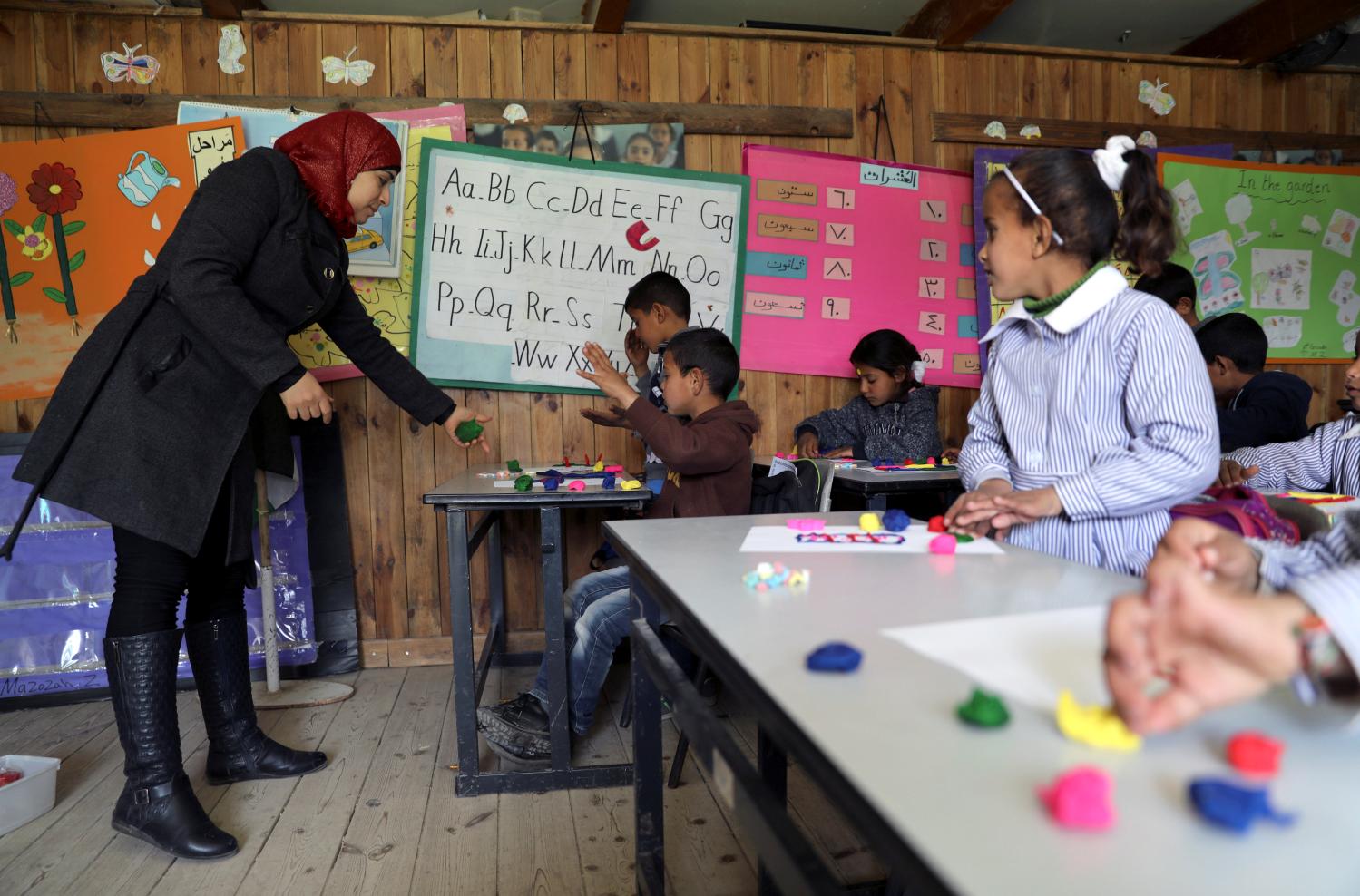
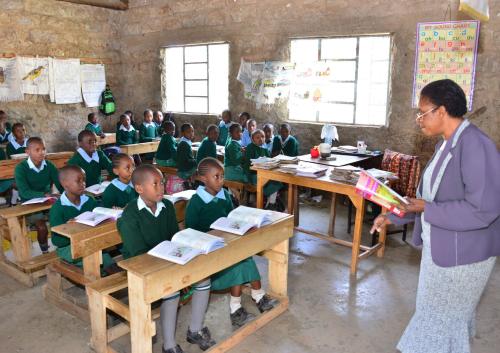
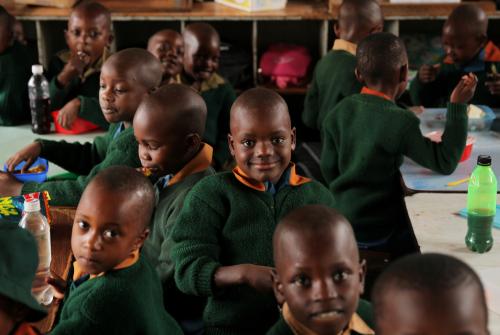
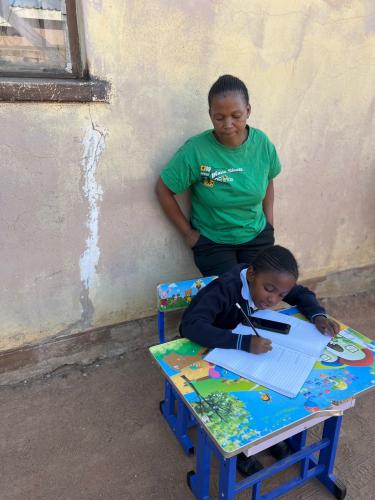
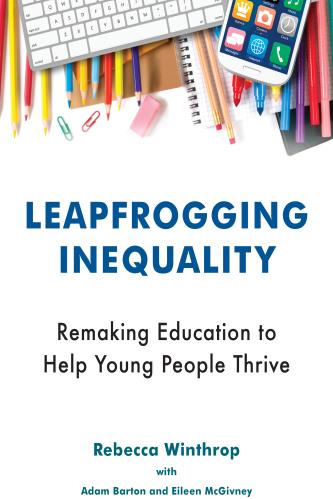






Commentary
Getting millions to learn: Providing practical and entrepreneurial education in Uganda
April 22, 2015